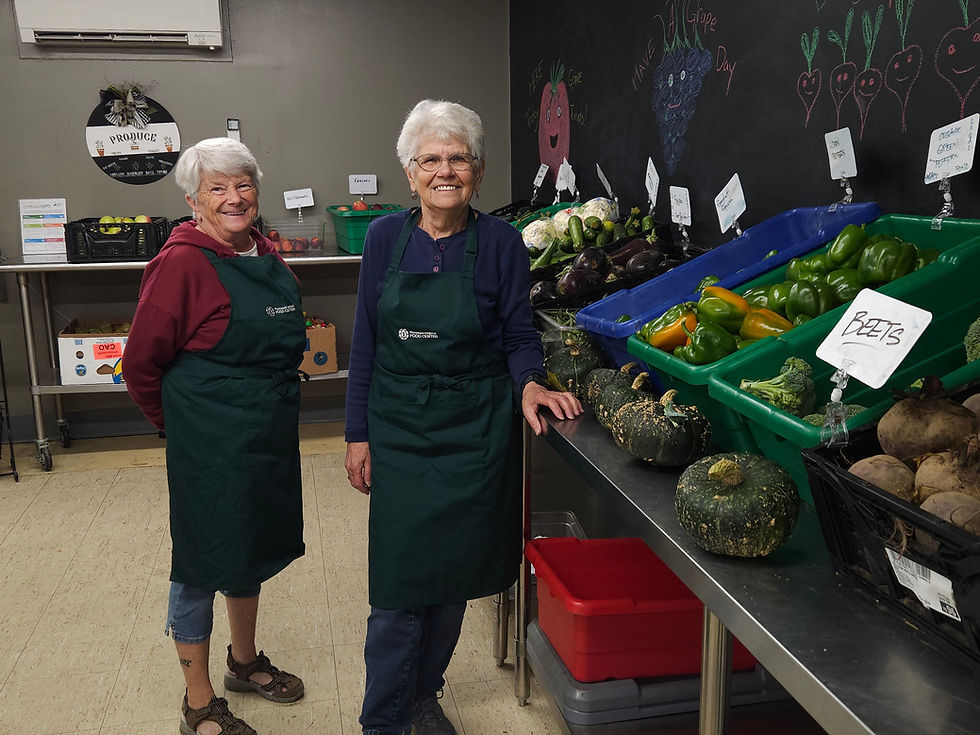Oil's in a days work: Whitney talks oil selection, nutrition content and more!
- kelly43337
- Oct 16, 2019
- 4 min read
Olive oil, coconut oil, avocado oil, palm oil, safflower oil, sunflower oil, canola oil, vegetable oil, etc. What’s good for you? What to avoid? When to use what?
For starters these are oils in liquid form meaning they contain mostly unsaturated fats. Conversely, solids fats such as lard or butter contain mostly saturated fats. Oils contain more mono- and poly-unsaturated fats and therefore are heart healthier. These oils do not raise LDL (“bad”) cholesterol levels. The exception in this list is coconut oil, as it is solid at room temperature, does contain a higher amount of saturated fats.
On average, vegetable oils (canola, corn, cottonseed, olive, peanut, safflower, soybean, and sunflower) contain about 120 calories (all fat calories) per 1 tablespoon. Oils should generally be stored in cool, dark places, away from heat and sunlight.
Avocado, canola, corn, peanut, refined olive, safflower and soybean oils all have high smoke points. The smoke point is the temperature that oils starts to break down. These oils can be used for foods that are being cooked at high temperatures (like stir frying or frying). You might notice when oils get too hot, they give off an unpleasant smell or bitter flavor, this is the oil breaking down and you would want to get rid of the oil. Once the oil starts breaking down it can lose some of its’ beneficial properties.
More on smoke points in the real world--a high smoke point means the oil would be great for searing, browning, and deep-frying. A medium-high smoke point is best for baking, oven cooking, or stir-frying.
The term medium smoke point refers to cooking methods such as, light sautéing, sauces, and low-heat baking. No heat refers to making dressings, dips, or marinades.
Olive oil is mainly monounsaturated fat, which is coined heart healthy. Olive oil is rich in vitamin E and K. What do the terms virgin, extra-virgin and pure mean? These terms vary depending on the processing and acidity of the oil. Virgin olive oil has not been processed, heated, or chemically altered. Extra-virgin contains the most nutrition, is lower in acidity (which is a good thing) and has the strongest flavor. However, extra virgin olive oil has a lower smoke point and heating it too hot can break down it’s beneficial properties. Pure olive oil is not as strongly flavored, less expensive and has a higher smoke point.
Coconut oil seems to be all the rage in recent years with countless health claims. Thus, people are using it in everything from coffee to face regimens. Coconut oil is a great plant-based option (no cholesterol). It is made up of eighty to ninety percent saturated fat, making it higher in saturated fat than butter. Coconut oil is medium-chain-triglycerides (MCTs), which is indeed a saturated fat, but the role MCTs play in the body is largely unknown at this point. So, when you read the label and see it’s entirely saturated fat, it’s not the whole story. The determination on whether that is something worth getting more of is still to come. A cold-pressed product has more nutrients than refined. Coconut oil contributes a favorable flavor and can be used in many recipes. However, be cautious of the claims it carries. There is no need to replace other oils you may typically be using for coconut oil and know that if you do, you are upping your saturated fat intake.
Avocado oil is highest in monosaturated fatty acids and has a small amount of polyunsaturated fats and even smaller amount of saturated fat. This oil is high in oleic acid, which is thought to decrease LDL cholesterol (“bad” cholesterol). Avocado oil has a high smoke point, making it a great oil to use for recipes requiring high heat. It is neutral in flavor, sweet aroma. Look for cold-pressed as it is less refined and bares antioxidants. It is great in dressings, sauces, sautéing etc. Avocado oil is another up-and-coming oil that we continue to hear more about.
Canola oil is a very versatile oil with a medium-high smoke point and neutral flavor. It does contain some omega-3 fatty acids and monosaturated fatty acids (both a plus). However, it does not tote as many health benefits as EVOO and is often highly refined. Despite some sources discrediting this oil, it should not be one to avoid.
Palm oil vs. palm kernel oil. They are made from different parts of the plant. Both high in saturated fat (palm kernel oil is higher). Palm oil is less processed with more beneficial plant chemicals. They both have high smoke points.
Safflower oil comes from the seeds of the safflower plant. It has a high smoke point and is often modified to be high in monosaturated fatty acids. It is naturally high in omega-6 fatty acids. Safflower oil holds a neutral flavor.
Sunflower oil is naturally high in polyunsaturated fatty acids, is most commonly used for frying due to its high smoke point and is found in many proceeded foods.
So, what is the bottom line? There is room for most oils! Think about the flavors you enjoy when choosing oils. Think about the type of heat you are using in order to best hold onto the health benefits of oils (you would not want to use an extra virgin olive oil for frying etc.). Be cautious about the claims you hear about various oils. Research is ongoing and most claims are just that, claims. Think about what we do know, unsaturated fatty acids are better for us than saturated fats, using extra virgin olive oil more often than butter is not a bad idea. However, does butter fit, absolutely. Because there is such a variety of different vegetable oils at our disposal, get creative and see what you enjoy best!




Comments